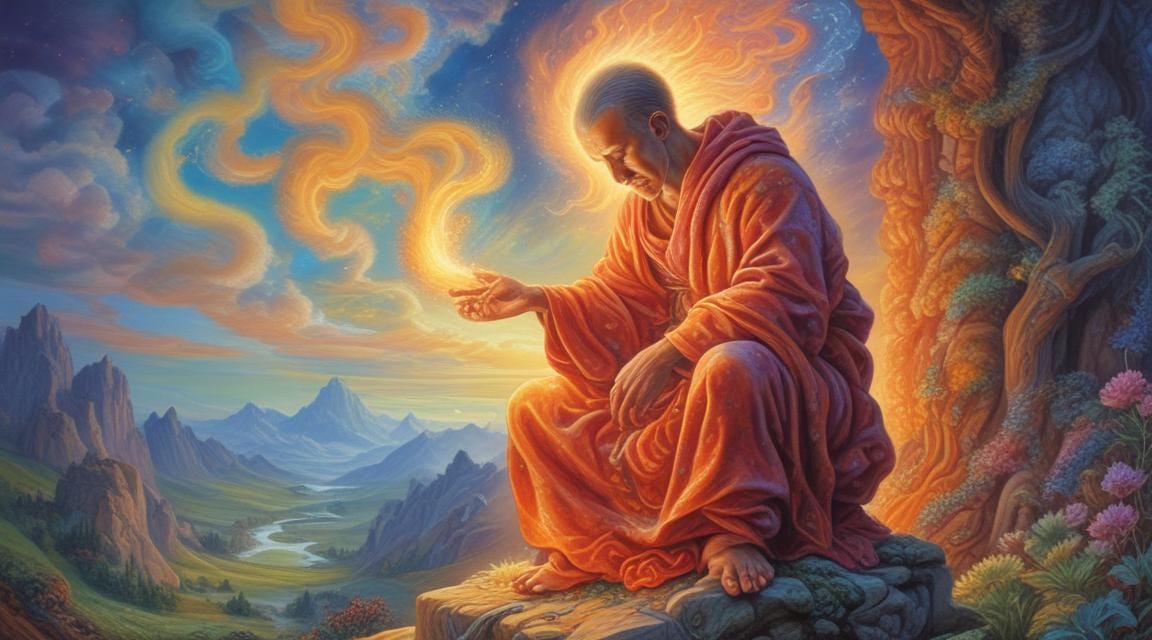How Your Values Shape Your Behaviour More Than You Think
On June 11, 1963, Buddhist monk Thich Quang Duc burned himself alive on the streets of Saigon. He did so to protest President Ngo Dinh Diem’s oppressive and brutal actions against the majority Buddhist population of Vietnam, which culminated in the killing of nine peaceful protesters by the army.
Quang Duc’s act of defiance against a corrupt government fueled a revolution and forever changed the world. The ‘Burning Monk,’ was willing to give up his life for his most important value — the freedom to be a Buddhist in Vietnam.
Later, John F. Kennedy would say, “No news picture has generated so much emotion around the world as that one.”
Values are core beliefs that we have developed over the years. They are the ethics that we feel so strongly about and the points of view that we find ourselves arguing for in conversations. They are what drive us from the minute we open our eyes, till the moment we sleep.
Our values are the GPS of our lives. They set the path on which we want to progress. They form the principles that we are willing to live by, and some, like Quang Duc, would die for.
Values are a fundamental part of our identity. We are most often defined by what we choose to find valuable in our lives. Every decision we make is based on that value we’ve placed at the top of our awareness — The lens that we’ve chosen to view the world with.
However, our values are often complicated by our upbringing, society, and the effect that the media has on us, and as such, we need to dig deep and find what values define us.
Quang Duc had spent years in monastery isolation, was a meditation expert and his Buddhist beliefs were all that he lived by. On that fateful day, he laid a cushion on the streets, crossed his legs and slipped into deep meditation. Another monk took out a gasoline can and poured it all over him.
Quang Duc chanted a few words of prayer, lit the match he held in his hand and threw it onto his gasoline filled body. For ten minutes, he sat still burning, never moving or screaming till his body finally collapsed. That act of self-sacrifice would forever alter history.
How to Choose our Values
In Mark Manson’s book, The Subtle Art of not giving a F*ck, he compares good and bad values in the following 3 ways:
Evidence-Based Vs. Emotion-Based Values
Research shows that we often make decisions using our feelings and not reason. However, our feelings are often self-entered willing to give up long-term benefits for short-term gains, and are often warped and/or delusional.
People who lead their lives based on how they feel will find themselves perpetually on a treadmill, constantly needing more, more, more. Our purpose should be sought not merely through what feels good. It must be considered and reasoned. We must accumulate evidence supporting it. Otherwise, we’ll spend our lives chasing a mirage.
Constructive Vs Destructive Values
We don’t want to value things that harm ourselves or others. We do want to value things that enhance ourselves and others.
If you value martial arts because you enjoy hurting people, then that’s a bad value. But if you value it because you are in the military and want to learn to protect yourself and others — that’s a good value. Ultimately, it’s the intention that matters most.
Controlled Vs. Uncontrolled Values
When you value things that are outside your control, you essentially give up your life to that thing.
Money is a bad value because you can’t always control it. Creativity or industriousness or a strong work ethic are good values because you CAN control them–and doing them well will ultimately generate money as a side effect.
We need values we can control, otherwise our values control us.
I’m not saying that we all must die for our values, but we must sacrifice parts of our lives for them. That is, if we genuinely believe in them.
For me, learning is a strong value that I live by. That means I’m continually taking leadership courses to help me lead my company. I try to impart training to my team at every opportunity. While in my writing life, I’m continually reading — a book a week, and taking one writing course after another.
This value of learning means I’m willing to sacrifice hours of my free time to the extent that I hardly watch any television and have altered my life to have less social outings.
Now, when I’m disconnected from learning, I quickly wilt just like a flower without water would.
Good values include honesty, bravery, authenticity, humility, vulnerability, self- respect, curiosity, charity and creativity.
Bad values include manipulation, self-centredness, people pleasing, comparing, judging, trying to be rich for the sake of being rich.
What values do you choose to live your life by?
And how much are you willing to sacrifice for them?




It's intriguing to know people have such attachments to their values. I agree also that people's values must not only be positive but must be useful to the general good of the people.
I have put my livelihood and career on the line for my values, but I don’t know if i could ever do physical harm like that. That’s so brave